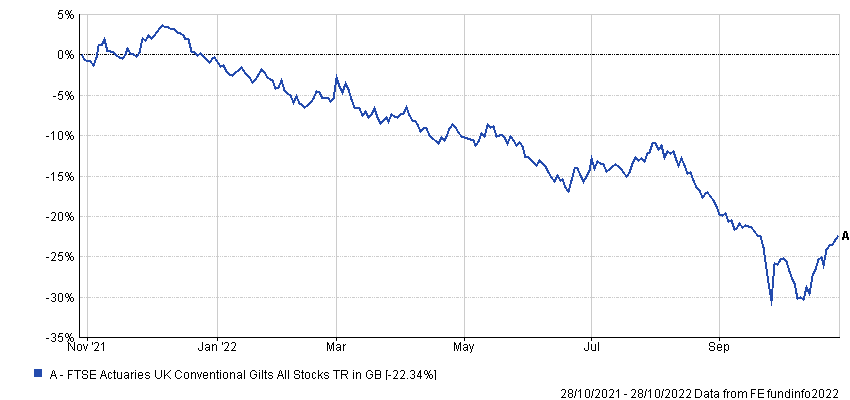Robert Peston has claimed he was more frightened during Liz Truss’s reign as prime minister than he was during the financial crisis, saying that, unlike this year, there was no point in 2008 when he felt the UK’s financial solvency was at risk.

Peston is now the political editor of ITV News, but became a household name during the financial crisis as the BBC’s business editor. Speaking at the AIC’s Investment Company Showcase, he admitted there were occasional moments in 2008 when “the sheer quantum of public sector guarantees” got to such a level that he began to worry about what would happen if the economy never recovered.
“But there was never quite the sense I had a few weeks ago that there would be no takers when we tried to sell our bonds,” he said. “And for a proud, developed economy like ours, that was an absolutely astonishing situation.
“[Truss] was putting us in a position where it was not unrealistic to think we would end up where we were in the 1970s, looking for a bailout because the government wouldn't be able to sell its debt. It was genuinely scary.”
Peston pointed out that Truss’s view that the UK had been growing too slowly for too long was “bleeding obvious”, but said where she went wrong was in her understanding of why the UK has been able to borrow money so cheaply.
Yields on 10-year gilts have been between 1 and 1.5 percentage points lower than those on US treasuries for most of the time since the UK voted to leave the EU in 2016. Peston said this wasn’t because investors thought the UK would benefit from Brexit, but because they thought restricting access to our biggest market would reduce capacity and therefore inflation risk.
“When Kwasi Kwarteng and Liz Truss did their notorious mini-Budget, inflation was already at 10% and the shock to the labour force from Covid focused people's minds on the fact we didn't have massive spare capacity,” he continued.
“So there were two things going on: firstly, investors saw that the spare capacity of the economy had been eliminated. And secondly, they looked at the deficit of the UK as a result of the mini-Budget and saw we were going to be borrowing an additional £45bn every single year.”
As a result, Peston said a “moron risk premium” was applied to UK gilts, causing yields to spike. Replacing Liz Truss as prime minister with Rishi Sunak, and Kwasi Kwarteng as chancellor with Jeremy Hunt, has already reversed some of this premium and the yield on 10-year gilts has fallen below that on 10-year treasuries again.
Performance of index over 1yr

Source: FE Analytics
“But there is a permanent Truss cost, which at the moment looks as if it will mean the government has to pay an extra £5bn to £10bn a year to borrow for quite some time,” he added. “That's quite a big price to pay for a prime minister who was only in office for 49 days.”
Peston said that if Truss had really wanted to improve growth, she could have taken steps such as encouraging immigration or relaxing planning laws, but accepted these are issues that tend to split the Conservatives down the middle.
He went on to claim that the party has become ideologically driven since the vote to leave the EU and is now full of people who regard anyone who disagrees with them as the enemy – including organisations such as the Office for Budget Responsibility.
“In Sunak we have an individual who is prepared to take advice,” Peston continued. “And that, believe it or not, is something that will help you.”
Asked whether Labour has anything to offer investors and the economy apart from the fact it isn’t the Conservatives, Peston claimed many people have underestimated Keir Starmer, pointing to his success in “kicking out the left” from the party.
He was also enthusiastic about Labour’s plans to invest in renewables, saying: “The world is moving to green industry. This is irreversible and Labour has the basics of some policies that would help us move to a low-carbon economy that is more geared to manufacturing than services. It's an interesting and persuasive plan of sorts.”
But he added: “The reality is, when you have a government that has been as conspicuously incompetent as this one for quite some time, it's hard to conceive of how bad Labour would have to be [to not win the next election].”




